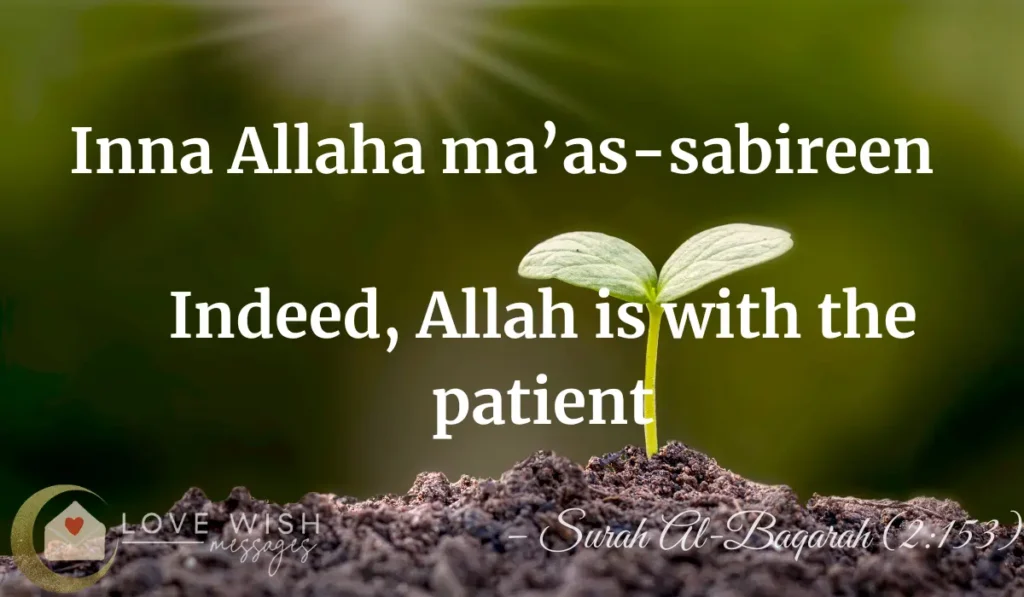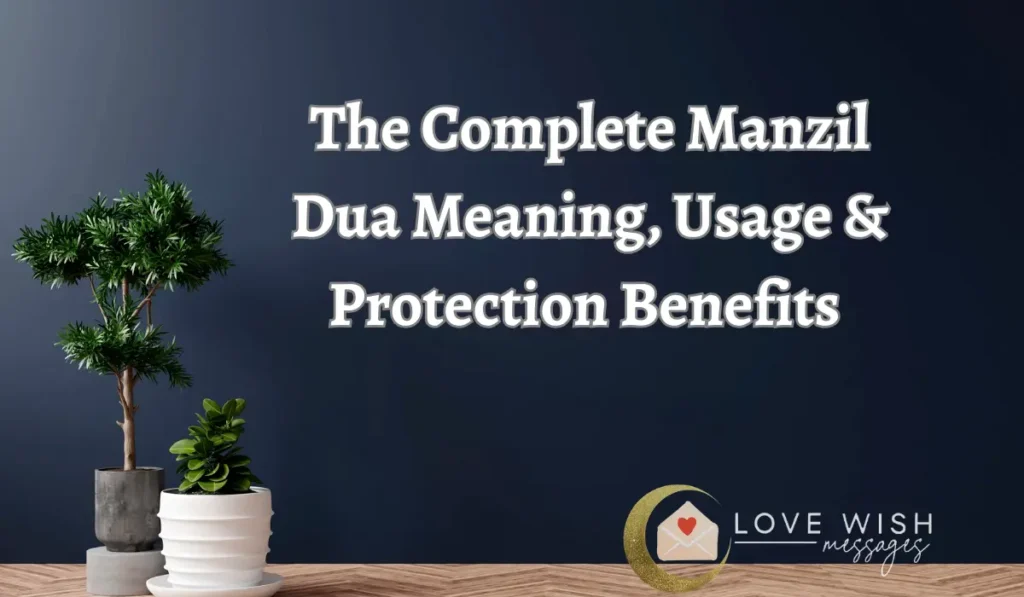Patience in Islam: The Quiet Strength That Shakes the Heavens

Patience in Islam—it’s not what most people think. It’s not just staying silent when life hurts or holding a straight face when everything around you collapses. It’s not about pretending to be okay. It’s something deeper. Sabr is a quiet, sacred strength that settles in your chest even when the outside world feels loud and chaotic.
It’s holding on when you’re exhausted. When your heart is bruised and your mind is full of “Why?” Even then, something within still whispers, “Allah knows.” Not loudly. Just enough to keep you breathing, praying, and walking forward.
Sometimes, patience in Islam feels like dragging yourself through the day with a smile that costs more than it shows. Other times, it’s choosing silence when someone wounds you—not because it didn’t hurt, but because you placed your peace above your pride.
And no, it isn’t pretty. It’s not filtered faith or Instagram-worthy belief. It’s raw. It’s crying in sujood because you’ve repeated the same dua a hundred times—and still, nothing seems to change.
But you keep saying it.
Because maybe sabr isn’t about passively waiting for ease. Maybe it’s what holds you together through the waiting. Maybe it’s Allah saying, “Stay. I’m still writing your story.”
We always hear “Sabr is beautiful.” And it is. But let’s be honest—it’s also hard. It’s quiet. It’s lonely. But in Islam, patience is never wasted. Never unseen. Allah counts every tear, every moment you chose faith over frustration.
And sometimes—that’s the only thing that keeps you going.
Patience in the Qur’an

The Qur’an’s teachings on patience form the foundation of a believer’s endurance. Across its chapters, Allah speaks directly about the virtue of sabr, tying it to reward, love, success, and nearness to Him. The repetition of these messages highlights just how essential patience in Islam truly is.
Below is a powerful collection of Qur’anic verses on patience, offering guidance, comfort, and strength for every believer navigating life’s tests.
Core Verses on Patience in Islam
The following Quranic verses about patience illustrate how central sabr is to a believer’s life. These ayat don’t just encourage endurance—they elevate it. Through them, we learn that patience in Islam is a source of strength, reward, leadership, and divine companionship.
“O you who have believed, seek help through patience and prayer. Indeed, Allah is with the patient.”
Surah Al-Baqarah (2:153)
— A foundational verse in Islam. When you are patient and turn to prayer, Allah Himself is with you.
“And We will surely test you with something of fear and hunger and a loss of wealth and lives and fruits, but give good tidings to the patient.”
Surah Al-Baqarah (2:155)
— Tests are a part of life, but glad tidings belong to those who respond with sabr.
“Indeed, the patient will be given their reward without account.”
Surah Az-Zumar (39:10)
— Allah promises limitless reward for those who practice true patience.
“So be patient. Indeed, the promise of Allah is truth.”
Surah Ar-Rum (30:60)
— Patience is not empty hope—it is anchored in the certainty of Allah’s promise.
“And be patient, for indeed, Allah does not allow the reward of those who do good to be lost.”
Surah Hud (11:115)
— Every act of patience is preserved. Nothing goes unnoticed by Allah.
“And obey Allah and His Messenger, and do not dispute and thus lose courage… and be patient. Indeed, Allah is with the patient.”
Surah Al-Anfal (8:46)
— Patience preserves unity, courage, and spiritual strength in times of conflict.
“And be patient over what they say and avoid them with gracious avoidance.”
Surah Al-Muzzammil (73:10)
— Sabr often means choosing dignity over reaction, even when words hurt.
“And those who are patient, seeking the countenance of their Lord… they will have the good outcome of this world.”
Surah Ar-Ra’d (13:22)
— Patience for Allah’s sake brings blessings in both worlds.
“And surely, We shall try you until We know the ones who strive among you and the patient ones; and We shall test your affairs.”
Surah Muhammad (47:31)
— Tests distinguish true believers. Sabr is proof of spiritual maturity.
“But if you endure patiently, verily, it is better for the patient.”
Surah An-Nahl (16:126)
— When in doubt or hurt, patience remains the better path.
“And We made from among them leaders guiding by Our command when they were patient and [when] they were certain of Our signs.”
Surah As-Sajdah (32:24)
— Sabr isn’t just personal. It shapes leadership, influence, and lasting legacy.
“Peace be upon you for what you patiently endured. And excellent is the final home.”
Surah Ar-Ra’d (13:24)
— Words every soul longs to hear. Sabr leads to Jannah.
“And whoever is patient and forgives – indeed, that is of the matters [worthy] of determination.”
Surah Ash-Shura (42:43)
— Forgiveness coupled with patience is a mark of deep strength and faith.
“And be patient, for your patience is not but through Allah.”
Surah An-Nahl (16:127)
— True sabr is only possible with Allah’s help.
“And We gave him [Ayyub] back his family, and the like thereof with them, as a mercy from Us and a reminder for those of understanding.”
Surah Sad (38:43)
— The story of Prophet Ayyub (AS) is a timeless example of patience rewarded with divine mercy.
What These Verses Reveal About Patience in Islam
Taken together, these Qur’anic verses on sabr teach us that patience in Islam is:
- A source of divine companionship — Inna Allah maʿa aṣ-ṣābirīn
- A path to unlimited reward — Ajruhum bighayri ḥisāb
- A mark of spiritual leadership — Lammā ṣabarū wa kānū bi āyātinā yūqinūn
- A means of earning Paradise — Salāmun ʿalaykum bimā ṣabartum
In every hardship, Allah reminds the believer that sabr is never in vain. It’s a quiet strength that shakes the heavens—and earns His nearness.a glimpse of how highly sabr is valued by Allah.
These Islamic Motivational Quotes also highlight how sabr fuels strength, success, and faith during trials.
Hadith About Patience

When learning about patience in Islam, we look to the example of Prophet Muhammad (peace be upon him)—the embodiment of sabr. From persecution and personal loss to battles and betrayal, he remained firm, compassionate, and trusting in Allah.
The Sahih Hadith below show that Islamic patience is not emotionless—it’s filled with dua, struggle, and silent strength. These narrations remind us that pain, endured for Allah, is never wasted.
Authentic Hadith on Patience in Islam
“Whoever remains patient, Allah will make him patient. Nobody can be given a blessing better and greater than patience.”
— Sahih Bukhari 1469
“Verily, patience is at the first stroke of a calamity.”
— Sahih Bukhari 1302
“If Allah wants to do good to someone, He afflicts him with trials.”
— Sahih Bukhari 5645
“No fatigue, nor disease, nor sorrow, nor sadness, nor hurt, nor distress befalls a Muslim, even if it were the prick he receives from a thorn, but that Allah expiates some of his sins for it.”
— Sahih Bukhari 5641; Muslim 2573
“The strong is not the one who overcomes others by his strength, but the strong is the one who controls himself while in anger.”
— Sahih Bukhari 6114
“How wonderful is the affair of the believer! For his affairs are all good… If something bad happens to him, he bears it with patience and that is good for him.”
— Sahih Muslim 2999
“A Muslim, male or female, continues to be tested in their person, wealth, and children, until they meet Allah with no sin.”
— Tirmidhi 2399 (Hasan)
“When Allah loves a servant, He tests him. If he bears it with patience, He chooses him.”
— Sunan Ibn Majah 4031 (Hasan)
“No Muslim is afflicted with harm but that Allah will remove his sins as leaves fall from a tree.”
— Sahih Bukhari & Muslim
“Patience is light.”
— Sahih Muslim 223
“He who does not show patience will be given no patience.”
— Sahih Muslim 1053
These hadith don’t just describe patience in Islam—they define it. The Prophet (peace be upon him) taught us that every pain, every quiet heartbreak, and every tear shed in faith is recorded and rewarded.
Patience is not passive suffering. It is active belief, rooted in the knowledge that Allah sees, hears, and never forgets.
Every hardship, endured with sabr, brings the believer closer to reward and success. Discover more in these
735+ Islamic Wishes for Success.
Patience in Islam Quotes (English & Arabic)

Sometimes, a single quote can hold your heart together when the world feels like it’s falling apart. Islamic quotes about patience are not just beautiful—they’re reminders of Allah’s mercy, the reward of sabr, and the quiet strength of a believer who continues to trust even in hardship.
Below are deeply reflective quotes on patience in Islam, ideal for journaling, reflecting, or sending to a loved one who’s struggling.
English Quotes on Patience in Islam
- “Sabr is when your heart accepts what your tongue cannot explain.”
- “Your patience is not for the world—it is for the One who created it.”
- “Sabr is the silent dua of the heart.”
- “A moment of patience in a moment of anger saves a lifetime of regret.”
- “Every second of sabr is a step closer to Allah’s mercy.”
- “Behind every sabr is a door only Allah can open.”
- “Sometimes sabr means walking away, not because you’re weak, but because you trust Allah’s justice more than your own.”
- “Be patient—not because you are helpless, but because Allah is your Helper.”
- “What you lose with sabr will be replaced with something better, by the One who sees your pain.”
- “Patience is not about how long you wait—it’s about how well you behave while waiting.”
- “Allah delays to give more, not to deny.”
- “The believer’s silence during trial is not emptiness—it is full of faith.”
- “Endure with sabr, and what’s written for you will find you.”
- “When your heart is tired, let sabr be your shelter.”
- “Patience isn’t weakness. It’s waiting in worship.”
- “Real strength in Islam is silent, tearful, resilient sabr.”
- “Sabr is crying in sujood, then rising with peace in your heart.”
- “He who is patient in private is honored in public by Allah.”
- “Sabr is holding on to Allah’s name when everything else slips away.”
- “To be patient is to live every moment as if Allah is about to respond.”
These quotes capture the emotional truth of sabr in Islam—that patience is spiritual power, not passive pain.
Arabic Quotes on Patience
(With Transliteration & English Translation)

Arabic expressions often carry a depth of emotion and barakah that resonates uniquely with the soul. Here are some of the most beloved Arabic sabr quotes from the Qur’an and traditional wisdom:
الصبر مفتاح الفرج
As-sabr miftāḥ al-faraj
“Patience is the key to relief.”
وَاصْبِرْ وَمَا صَبْرُكَ إِلَّا بِاللَّهِ
Waṣbir wa mā ṣabruka illā billāh
“Be patient, and your patience is only through Allah.”
— Surah An-Nahl (16:127)
فَصَبْرٌ جَمِيلٌ
Faṣabrun jamīl
“So patience is beautiful.”
— Surah Yusuf (12:18)
وَبَشِّرِ ٱلصَّـٰبِرِينَ
Wa bashshir aṣ-ṣābirīn
“And give glad tidings to the patient.”
— Surah Al-Baqarah (2:155)
إِنَّ ٱللَّهَ مَعَ ٱلصَّـٰبِرِينَ
Inna Allāha maʿa aṣ-ṣābirīn
“Indeed, Allah is with the patient.”
— Surah Al-Baqarah (2:153)
وَٱصْبِرْ وَٱحْتَسِبْ
Waṣbir wa-iḥtasib
“Be patient and seek your reward from Allah.”
إِن يَكُنْ غَنِيًّا أَوْ فَقِيرًۭا فَٱللَّهُ أَوْلَىٰ بِهِمَا ۖ فَلَا تَتَّبِعُوا ٱلْهَوَىٰ أَن تَعْدِلُوا ۚ وَإِن تَلْوُۥٓا أَوْ تُعْرِضُوا فَإِنَّ ٱللَّهَ كَانَ بِمَا تَعْمَلُونَ خَبِيرًۭا
In yakun ghanīyyan aw faqīran fa-Allāhu awlā bihimā…
“Whether rich or poor, Allah is more worthy of both…”
— Surah An-Nisa (4:135) (Reflection of patience in justice)
إِنَّ مَعَ ٱلْعُسْرِ يُسْرًا
Inna maʿa al-ʿusri yusrā
“Indeed, with hardship comes ease.”
— Surah Ash-Sharh (94:6)
These Islamic quotes on patience—in English and Arabic—offer light for dark days and a reminder that sabr is never silent in the sight of Allah. Whether shared on social media or whispered to the self, they plant seeds of resilience and trust.
Patience in Islam for Kids
Patience in Islam is not just for adults. It’s a spiritual value that can—and should—be introduced early in a child’s life. When kids learn about sabr, they begin to build emotional strength, empathy, and a connection with Allah that lasts a lifetime.
But teaching patience to children doesn’t have to be complicated. It starts with small, consistent moments that make sabr real and relatable.
1. Use Prophetic Stories They Can Feel
Children love stories. Use the lives of the Prophets to teach sabr through emotion and action:
– Prophet Yusuf (AS) was betrayed by his brothers, sold into slavery, and falsely imprisoned—but he remained patient. In the end, Allah raised his status.
– Prophet Ayyub (AS) lost everything—his health, his wealth, and even his children. Still, he never stopped thanking Allah. Allah rewarded him by restoring all he had lost and more.
– Prophet Muhammad (SAW) faced insults, exile, and personal loss. Yet he showed only kindness and continued his mission with unwavering patience.
These examples bring the meaning of sabr in Islam to life. Help children feel the sadness, the waiting—and the reward.
2. Make Sabr Relatable to Their World
Kids won’t always grasp big ideas—but they understand emotion. Teach Islamic patience through everyday moments:
– Waiting for a turn to speak? That’s sabr.
– Not interrupting when someone is talking? That’s sabr.
– Giving away a toy they love? That’s sabr.
– Not getting angry when they lose a game? That’s sabr.
Use simple affirmations:
“You waited patiently—that made Allah so happy.”
“Sharing your snack was sabr. That’s strong.”
This makes patience in Islam feel meaningful and empowering—even at a young age.
3. Teach Dua as a Tool for Patience
Let sabr become something they turn to Allah for:
– “Ya Allah, help me be patient when I feel upset.”
– “Ya Allah, make my heart soft when I want to shout.”
Encourage them to memorize short supplications, like:
“Rabbij’alni minas-sabireen.” (My Lord, make me among the patient. — Surah Al-A’raf 7:126)
The earlier a child learns to turn to Allah, the stronger their faith will grow.
4. Model Patience in Your Own Behavior
Children don’t just listen—they imitate.
– If you show sabr when you’re stuck in traffic, they’ll notice.
– If you stay calm when they misbehave, they’ll learn to do the same.
– Say out loud: “I’m choosing patience for Allah right now.” Let them see Islamic sabr in action.
Over time, this models a pattern of responding with faith instead of frustration.
5. Celebrate Their Efforts with Love
Don’t just correct impatience—praise every act of patience, no matter how small.
– “You waited your turn even when it was hard. That’s sabr.”
– “You shared even when you didn’t want to. That’s beautiful patience.”
End the day with gentle reminders:
“Allah saw your patience today. I’m proud of you, and Allah is even more proud.”
Through love, routine, and Islamic reminders, patience in Islam becomes not just a lesson, but part of your child’s heart.
You can also teach them short, heart-softening duas like those in our guide:
Islamic Birthday Wishes & Duas.
Patience in Islam in Urdu
صبر کا اسلامی تصور
The beauty of patience in Islam transcends languages—but for many Urdu-speaking hearts, sabr carries even deeper comfort when expressed in their mother tongue. These Islamic Urdu quotes about patience can soothe, inspire, and help us trust Allah’s plan—especially when life feels heavy.
Here are powerful and heartfelt Sabr quotes in Urdu, each paired with its English translation for easy understanding and reflection.
اللہ صبر کرنے والوں کے ساتھ ہے۔
Allah sabr karne walon ke saath hai.
Translation: “Indeed, Allah is with the patient.”
— Surah Al-Baqarah (2:153)
صبر ایک روشنی ہے، جو دل کو سکون دیتی ہے۔
Sabr ek roshni hai, jo dil ko sukoon deti hai.
Translation: “Patience is a light that brings peace to the heart.”
صبر کا پھل ہمیشہ میٹھا ہوتا ہے۔
Sabr ka phal hamesha meetha hota hai.
Translation: “The fruit of patience is always sweet.”
صبر کرنے والا کبھی خالی ہاتھ نہیں رہتا۔
Sabr karne wala kabhi khaali haath nahi rehta.
Translation: “The one who is patient is never left empty-handed.”

صبر کامیابی کی چابی ہے۔
Sabr kamyabi ki chaabi hai.
Translation: “Patience is the key to success.”
صبر وہ خزانہ ہے جس کا اجر اللہ خود دیتا ہے۔
Sabr woh khazana hai jis ka ajr Allah khud deta hai.
Translation: “Patience is a treasure whose reward is given by Allah Himself.”
مشکل وقت صبر کرنے والوں کے لیے رحمت بن جاتا ہے۔
Mushkil waqt sabr karne walon ke liye rehmat ban jata hai.
Translation: “Hard times become a mercy for those who are patient.”
جو اللہ کی رضا کے لیے صبر کرتا ہے، اللہ اسے ضائع نہیں کرتا۔
Jo Allah ki raza ke liye sabr karta hai, Allah use zaya nahi karta.
Translation: “Whoever practices patience for Allah’s sake, Allah never lets it go to waste.”
صبر کا مطلب خاموشی نہیں، بلکہ یقین ہوتا ہے۔
Sabr ka matlab khamoshi nahi, balke yaqeen hota hai.
Translation: “Patience doesn’t mean silence—it means certainty in Allah.”
صبر وہ طاقت ہے جو انسان کو حالات سے نہیں، اپنے نفس سے جیتنے دیتی ہے۔
Sabr woh taqat hai jo insaan ko haalaat se nahi, apne nafs se jeetne deti hai.
Translation: “Patience is the strength that helps a person overcome not just the situation, but their own self.”For more comforting reminders in your native tongue, you’ll love these
Allah Quotes in Urdu with Translation.
Why Sabr in Urdu Matters
For many families, elders, and Urdu-speaking loved ones, faith-based messages in Urdu hold special warmth. Sharing these Islamic quotes about patience in Urdu can uplift a grieving parent, a struggling sibling, or a friend waiting for Allah’s answer.
You can send them as:
- WhatsApp messages
- Friday reminders
- Captions for reflective Islamic posts
- Notes during tough times
Whether spoken aloud or quietly read, Urdu quotes about sabr bring comfort in a language the heart understands best.
Final Reflection & Dua
Patience is not about suppressing emotion. It is about surrendering outcomes to Allah while continuing to strive with hope. It is about knowing that Allah sees every silent hardship, every delayed prayer, and every moment you choose kindness over chaos.
The scholars say sabr is like a shield—it doesn’t remove the arrows, but it protects the heart from breaking.
So whatever you are facing—grief, loneliness, confusion, waiting—wrap it in sabr. Trust that Allah’s timing is never early, never late. He is never unaware of what you endure.
To deepen your reflection on how sabr connects with gratitude and spiritual growth, explore these
Islamic Gratitude, Inner Peace & Blessings.
Final Dua
Allahumma inni asaluka sabran jameelan, wa yaqeenan sadiqan, wa qalban khashian.
O Allah, I ask You for beautiful patience, true certainty, and a heart that is humble before You.
Rabbana afrigh ‘alayna sabran wa thabbit aqdamana wansurna ‘alal qawmil kafireen.
Our Lord, pour upon us patience, make our feet firm, and grant us victory over the disbelievers. — Surah Al-Baqarah (2:250)
Rabbij’alni minas-sabireen.
My Lord, make me among the patient. — Surah Al-A’raf (7:126)
Conclusion:
May Allah write your sabr in your scale of good deeds. May He protect your heart from despair and fill your waiting with light. And may your patience become your pathway to Jannah.

